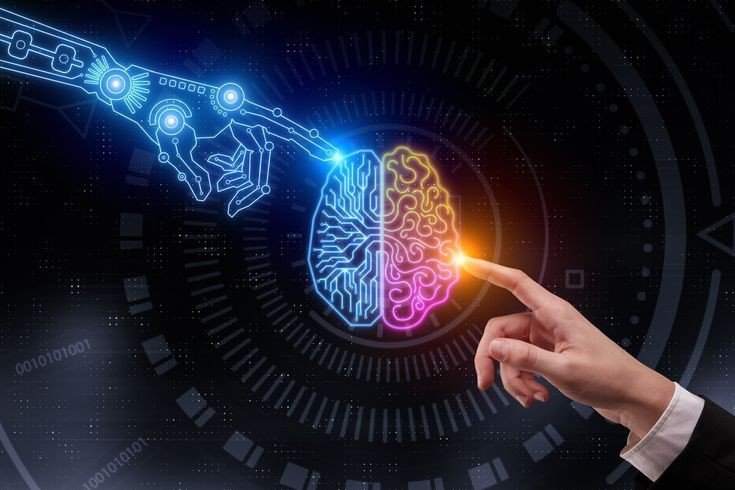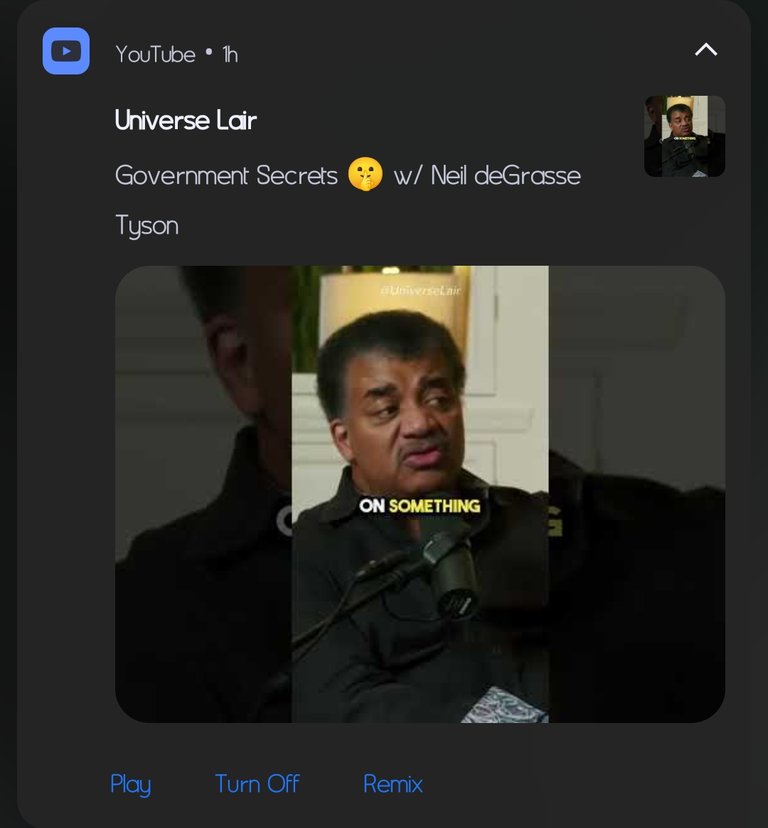The AI revolution came as a shocker to many but while some stood to debate whether or not the revolution was going to stand the test of time, others seized the opportunity to join in the revolution.

Courtesy of the numerous science-fiction movies I had seen in the past, I was really skeptical about AI as a whole. “What if the AI goes haywire” was always my very first line of thought. The good thing however is the fact that I wasn't totally dismissive of the concept because I didn't know enough about it to dismiss it. Because of this, I researched voraciously.

A Screenshot
Neil deGrasse Tyson became my favourite person to watch, especially on YouTube because his contents were and are still very informative. Because of the short reels he featured in, amongst other information and evidence, I've come to accept the fact that “AI is here to stay” and as humans, we can either use it for our own good or harm; it really depends on our mindset.

The controversy about AI taking human's jobs and consequently their sources of livelihood came up but didn't linger for very long. This is because a good number of people made peace with the fact that: first, AI is more efficient, durable and reliable when it comes to performing certain tasks and second, employers would always always choose efficiency and higher output at a stipulated amount of time over the reverse.
As such, one has to be extremely good at what they do or risk being laid off in certain job settings where AI can function optimally. There are a good number of jobs that AI should take, there are the ones AI shouldn't take and there are also jobs that require Human-AI collaborations. Over the course of this post, I will point out a few of these jobs.
Jobs AI Should Take.
The first job in this category would be “customer care chatbots”. This is because this job doesn't require so much emotion. I cannot even begin to count the number of times a customer care personnel was very dismissive or spoke rudely to me. Usually, we blame it on “a bad day or a long day”. Not to sound insensitive, but as a customer service personnel, professionalism should always be on one's fingertips. This way one can accurately respond to customer's needs whether they have a bad day or not.
I believe AI would perform exceptionally at this job because they would basically be doing what they are programmed to do and nothing else.
The next job AI should take would be “data entry and Processing”. One thing that makes us humans is our ability to make errors. Irrespective of how often we crosscheck, how proficient we are or how long we have done a particular job for, we are bound to make a few errors. When it comes to data entry and analysis by extension, perfection is usually required because one minute mistake can have dire consequences.
With AI, once the right commands are given, the job is done optimally and over a short period of time. Personally, I believe AI would strive beautifully in this sector.
Jobs AI shouldn't take.
First would be “health care”. As a person in the healthcare sector I would say that if AI takes over the healthcare sector, the human race may be in grave danger judging from the fact that health and illness go way beyond physical directives and commands.
Compassion, empathy and complex decision making are some of the many skills healthcare providers possess. If AIs are placed in a situation they haven't been programmed to tackle, they may do nothing and this can lead to the loss of a life; amongst other things.
Second on this list would be “creatives”. As the name implies, Creatives are humans who are simply, creative. Creativity transcends across borders, cultures and generations. I recently had a conversation with a Hiver who I tried to explain this concept to.

Image is mine
Creativity spans from a place of originality and innovation; two things that cannot be possessed by a man-made tech·no·lo·gy. Creatives are coming up with fresh and diverse forms of art every single day and will continue to do so for as long as possible.
There are jobs that absolutely shouldn't be left in the hands of AI and vice versa but right in the middle are the jobs that can be made easier with the help of AI and on the top of my list would be research jobs and cyber security.
Last year, I made acquaintance with a cyber security expert who believes in delegating tasks that AI can carry out to AI while he does the rest manually. Listening to him excitedly speak about how much AI has helped him in his line of duty was a clear pointer to the fact that AI and humans can indeed work together to produce brilliant outcomes.
LIEBE🤍
Posted Using INLEO